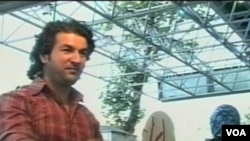Iran's crackdown on political dissent is ongoing. Now the Iranian government is threatening to crush any civil unrest that may occur because of the country's poor economic conditions. In fact, Iranian officials have coined the term "economic sedition" for expressions of discontent over the government's economic policies or the conditions they have produced.
Those conditions are grim. By some official Iranian estimates, unemployment stands at 14 percent; the Iranian parliament has claimed it is as high as 22 percent. U.S. Treasury Under Secretary for Terrorism and Financial Intelligence Stuart Levey noted recently that high unemployment poses a particular challenge for Iran's leadership because people under age 30 account for 3 out of four unemployed Iranians.
Inflation is also a problem, with many observers saying it is much higher than the government's official estimate of 9 percent. And it is anticipated that inflation will rise sharply soon, as the regime cuts Iran's public subsidies, which in past years have kept down the price of energy and food.
Iran's banking system is in trouble as well. Credit is difficult to obtain for average business owners, while politically connected elites fail to repay loans with impunity.
Iran's oil and gas industry, which Mr. Levey calls "the keystone of its economy", is also in a precarious state. Iran is having so much difficulty in attracting foreign investment, its oil production has stagnated and is in danger of decline.
The problems for both Iran's banking and energy sectors have become more acute in recent months, after the UN Security Council imposed tough new sanctions on Iran because of its failure to live up to its international nuclear obligations. Those sanctions have since been followed by additional penalties adopted by the U.S., the EU, Japan, South Korea and others.
Treasury Under Secretary Levey says the Iranian leadership's economic mismanagement has led to a loss of public confidence. But the appropriate response by the government should not be to charge the suffering Iranian people with "economic sedition." Rather, the Iranian government should decide, as President Barack Obama says, "This is not the best course for our people; this is not the best course for Iran."
The potential for Iran to succeed economically, "to open itself up to exchange and commerce with other countries is enormous," said Mr. Obama. "But in order to do that, the Iranian regime has to take a different course than the one that it's been on."




